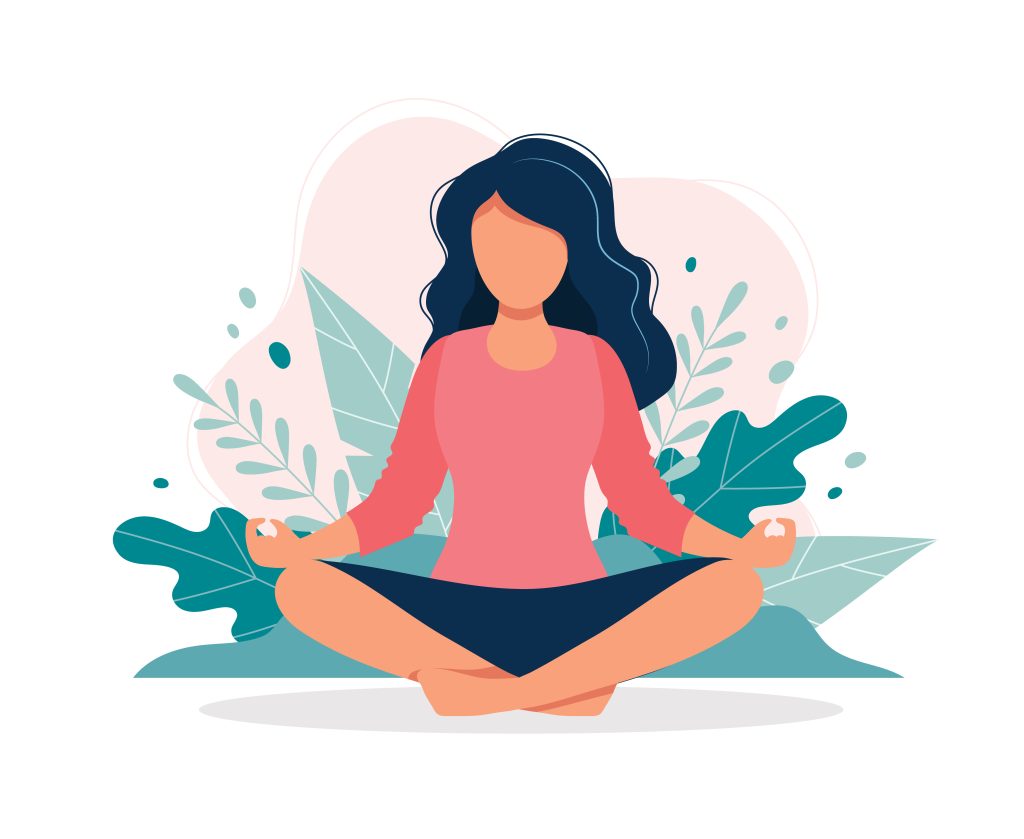
What is Meditation?
Meditation is a practice that helps you connect better with your mind. Through meditation you gain more insight into how your mind really works.
What is Meditation?
Meditation is an experiential practice that focuses on deeply connecting with your mind. It is a way to settle down enough to actually experience the workings of your mind and to gain insights. It is only when we can sit quietly attempting to concentrate the mind that we can observe how it actually works. Meditation is a personal practice that helps you be mindful. Some kinds of meditation such as the traditional focused attention or mindful meditation have scientific research as a basis for their popularity. When meditating mindfully the focus needs to be on one thing only. This could be your breath, a particular sensation in the body or even an object. If attention wavers you need to bring it consciously back to the focal point.
"Meditation is about seeing clearly the body that we have, the mind that we have, the domestic situation that we have, the job that we have, and the people who are in our lives. It’s about seeing how we react to all these things. It’s seeing our emotions and thoughts just as they are right now, in this very moment, in this very room, on this very seat. It’s about not trying to make them go away, not trying to become better than we are, but just seeing clearly with precision and gentleness…[We] work with cultivating gentleness, innate precision, and the ability to let go of small-mindedness, learning how to open to our thoughts and emotions, to all the people we meet in our world, how to open our minds and hearts"
- Pema Chodron
Why Meditate?

One of the best answers given for this question is by Ven. Henepole Gunaratna. He says:
"Meditation is not easy. It takes time and it takes energy. It also takes grit, determination and discipline. It requires a host of personal qualities which we normally regard as unpleasant and which we like to avoid whenever possible. Meditation takes ‘gumption’. It is certainly a great deal easier just to kick back and watch television. So why bother? Why waste all that time and energy when you could be out enjoying yourself? Why bother? Simple. Because you are human. And just because of the simple fact that you are human, you find yourself heir to an inherent unsatisfactoriness in life which simply will not go away. You can suppress it from your awareness for a time. You can distract yourself for hours on end, but it always comes back–usually when you least expect it. All of a sudden, seemingly out of the blue, you sit up, take stock, and realize your actual situation in life."
Join Our Free Online Course
Take the first step to relax your nervous system and prepare yourself to manage difficult emotions.
Meditation Made Simple: Start Your Practice
Benefits Of Meditation

Meditation can change the way the brain functions. The seemingly simple activity of focusing on a single object can produce amazing results that range from stress reduction and improved attention capacity to superior creativity, feelings of compassion and improved attention. However meditation is not easy and only gets better with practice. Some of the health benefits associated with this powerful tool include:
The medial prefrontal cortex gets activated when we are faced with experiences that bring on anxiety. The experience triggers a reaction in this part of the brain that brings on the feeling of fear and other emotions that arise when frightened. This neural connection can be weakened with meditation. What also happens is that the section of the brain known for reasoning gets stronger. This combined action enables a person who meditates regularly to view frightening experiences in a rational manner.
Read to know more.
People who meditate regularly are more compassionate. Research has brought to light the fact that those who meditate are more able to reduce emotional reactions and focus their attention. Studies have also shown that the part of the brain connected to empathy, the temporal parietal junctures have stronger activation levels.
The ability to block out extraneous distractions which is a function of mindfulness meditation helps to remember and incorporate new information.
Clinical studies have reported that meditation is connected to bringing down the risk factors associated with Atherosclerotic Cardiovascular Disease (CVD). These factors include hypertension, insulin resistance, and psychosocial stress among others.








